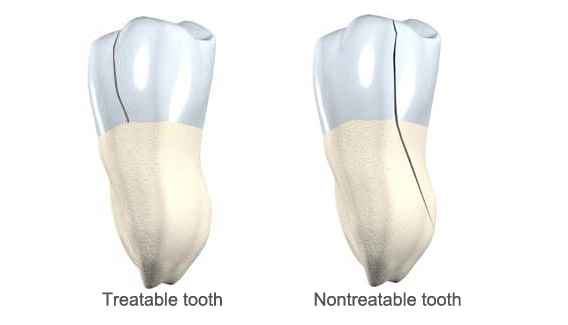A cracked tooth will often be unnoticed by the patient as most of the time it doesn’t cause any pain.
Sometimes a pain is felt when eating on hard foods or grains. Biting down causes the tooth to flex which then opens the crack, upon release the crack closes and stimulates the nerve causing pain.
Most fractures cannot be avoided because they happen when you least expect them. However, you can reduce the risk of breaking teeth by:
If you are aware that you are grinding/clenching your teeth at night, you may need you dentist about getting an occlusal splint (night guard) as this will absorb most of the grinding forces and prevent wear of your teeth.
Relaxation exercises may also help.

Treatment depends on the direction and severity of the crack. Small cracks may be removed and treated with bonded fillings.
With larger cracks a crown may be required as it encompasses the whole thereby protecting it from flexing and cracking further. Sometimes the nerve may be affected and dies indicating the need for root canal treatment.
If the crack goes too far vertically, there is a possibility the tooth may need to be removed and replaced with an artificial one. (See bridges, denture, and implant)